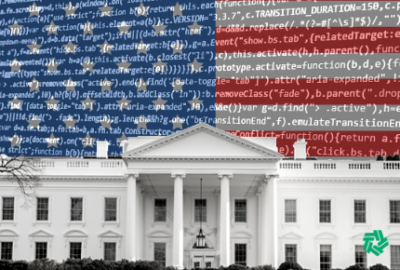3 agencies receive first installment of funds to improve customer experience
The Technology Modernization Fund Board and the Office of Management and Budget has made 18 awards, including four that specifically call out zero trust, worth more...
The Technology Modernization Fund Board and the Office of Management and Budget promised in June to spend $100 million on projects that will improve citizen services. The first installment of that commitment came to fruition today.
The TMF Board and OMB announced they were awarding $26.8 million to three agencies to address legacy systems that serve the public.
“The investments in the Labor Department, AmeriCorps and U.S. Agency for International Development will modernize outdated systems, accelerate implementation of zero trust architecture to address immediate cybersecurity gaps and enhance public-facing services in order to provide simple, seamless, and secure access to government services,” said Clare Martorana, the federal chief information officer in a statement.
AmeriCorps becomes the third small agency to win funding from the board. The agency will receive $14 million to modernize its community grants management system that serves more than 2,800 non-profits, faith and community based organizations.
The TMF loan will go toward updating the current grants system, which AmeriCorps developed in 2002 and “cannot effectively integrate with other federal systems or user engagement tools, lacks modern business intelligence capabilities to manage grants and significantly restricts AmeriCorps’ ability to meet its mission, keep pace with the current grant-making standards and technical needs, and appropriately steward agency resources,” the TMF website stated.
“AmeriCorps will replace its antiquated system with a modern platform that allows the agency and its partners to better focus their efforts on improving the communities they serve,” the TMF Board said in a release.
Labor’s second TMF win
The Labor Department won a loan of $7.2 million to modernize and improve the security of its permanent labor certification services. This is DoL’s second award under the TMF, winning $3.5 million in 2018 to modernize its work visa application process.
“The PERM Visa Modernization project at DOL will make it easier, faster and cheaper for employers to access permanent labor certification services and create a more seamless immigrant visa processing experience with the departments of Homeland Security and State,” the TMF Board wrote on its website. “Specifically, it will integrate a modernized PERM labor certification process into DOL’s Foreign Labor Application Gateway (FLAG) digital platform, which uses GSA’s Login.gov services and enables the secure and efficient sharing of labor certification data across the multi-agency visa processing life cycle through its Interagency DataHub technology.”
Brian Pasternak, the administrator of Labor’s Office of Foreign Labor Certification, said in a statement, “By integrating the permanent labor certification process into the Foreign Labor Application Gateway, which uses GSA’s Login.gov, we will make it easier, faster, and cheaper for employers to access permanent labor certification services and create a more seamless immigrant visa processing experience.”
Fourth zero trust loan
USAID received its first award from the TMF Board. It will use the loan of $5.6 million to move faster toward a zero trust architecture. USAID expects the extra funding to accelerate its security capabilities by a year.
“By the end of the project, USAID will have a modern identity management system that addresses the business problem by providing sufficient artifacts to meet federal audit levels and compliance, as well as enhanced identity controls that permit USAID’s cybersecurity teams to dynamically govern USAID user access to systems/applications/networks uniformly, regardless of user location,” the TMF website stated. “This will provide a greater degree of protection for the agency’s cyber assets and improve the work experience of 13,000-plus end users around the world by consolidating identities, modernizing authentication, providing password-less technology, and expanding the agency’s secure work for ‘anytime, anywhere’ access.”
USAID says it’s currently running pilots using multi-factor authentication and automatic and dynamic control access. It expects to move employees into the new identity management system in fiscal 2023 and have more than 50% of all users using the new system by 2024.
Since Congress approved $1 billion in the American Rescue Plan Act in March 2021, the board has made 18 awards, including four that specifically call out zero trust, worth more than $400 million. Since the TMF started in 2018, the board has made 29 loans worth more than $500 million.
The TMF still has more than $500 million to award from the ARPR, but it’s unclear if Congress will support additional funding for fiscal 2023. The House approved $100 million in its version of the budget, but the Senate, once again, zeroed out the TMF in its initial version of the appropriations bill. The Biden administration requested $300 million for 2023.
The TMF Board received no new funding in 2022 from the appropriators.
Copyright © 2025 Federal News Network. All rights reserved. This website is not intended for users located within the European Economic Area.
Jason Miller is executive editor of Federal News Network and directs news coverage on the people, policy and programs of the federal government.
Follow @jmillerWFED






